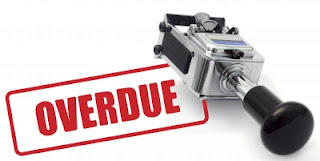 |
| Image courtesy of David Castillo Dominici / freedigitalphotos.net |
While
third-party debt collectors and collection law firms get the blame when it
comes to collections calls, most people don’t think about the fact that it is a
creditor that is responsible for the initiation of the collection activity, and
creditors pay a large role in how the collection activity is carried out. Debt collectors are paid only if they can
recover payment for the creditor and they are required to follow the laws regarding
collection activity.
Creditors
claim that it is important to them that debt collectors acting on their behalf
are respectful when they make collections calls because the reputation of the
creditor is at stake. One reason for
this is that third-party debt collectors are often working for creditors that
the customer is likely to work with again in the future.
Utility
companies, hospitals, government agencies, etc. want to maintain a decent
relationship with the customers to avoid potential problems in the future. However, despite the claims of the creditors,
they are not choosing collection agencies based on their ability to uphold the
reputation of the creditors.
As
unusual as it may seem, choosing a service provider based on who can provide
the lowest price is the bottom line when creditors choose a collection agency. The average amount of money they recover,
known as the recovery rate, along with the price they charge, is how most
creditors select a collection agency to recover the money they are owed. The creditors, it seems, care more about who
can perform the job at the least expense, rather than which collection agency
has the best trained employees and the least number of complaints.
Creditors
also claim that they are strict in what they will and won’t allow collection
agencies to do on their behalf; however, their ultimate goal is to recover some
or all of the money owed by each customer, and they make it clear to the
collection agency they hire that the recovery rate is what is of most
importance to them.
Creditors
are often large corporations or government agencies, and the reality is that
regardless of how the collection agency they hire to recover debt treats their
customers, many of the customers won’t have the option to discontinue future
services.





